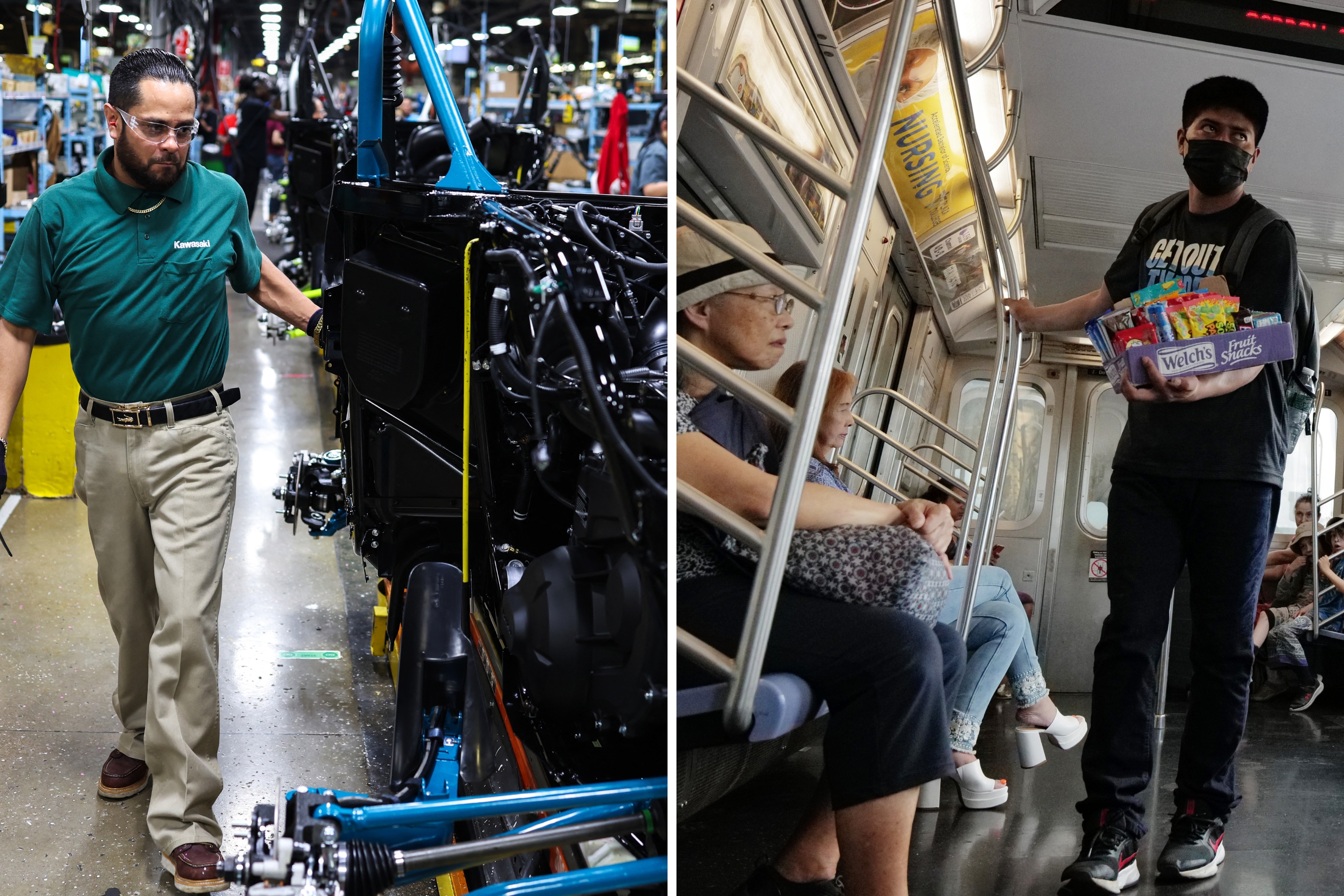The National Immigration Forum reports that with around 10 million jobs available across various skill levels, the departure of more Baby Boomers from the workforce and a declining birth rate leaves these positions unfilled by American citizens alone.
A recent study by the Federal Reserve Bank of San Francisco revealed that approximately 20% of the reduced labor market tightness in 2023 was attributed to the surge in immigration.
Cities like New York and Los Angeles, with high immigrant populations, experienced a significant impact on labor market dynamics, a trend expected to rise with the increasing number of immigrants.

There are opportunities to facilitate migrant workforce integration while addressing concerns about security among American citizens, according to expert insights.
The Fed’s analysis predicts a substantial net migration of approximately 3.3 million individuals to the US in 2023 and 2024, contrasting with the average of 1 million yearly in the previous decade.
The influx of immigrants has eased labor market challenges, leading to a decrease in the job market-to-vacancy ratio, as per the central bank’s findings.
Challenges Faced by Migrants in Accessing Work in the US
Common concerns surrounding immigration highlight fears of immigrants displacing existing workers in the US. However, the NIF argues that immigrants play a vital role across various sectors without directly competing with American workers.
Recent NIF research indicates that immigrants represent a significant portion of workers in key sectors, including agriculture, construction, STEM fields, and healthcare professionals.
An anecdote from the early stages of the Russia-Ukraine conflict illustrates the global demand for workers while underscoring the complexities faced by migrants seeking employment opportunities in the US.
This situation reflects a broader issue of the US falling behind in global competitiveness due to constraints on attracting skilled migrants, as expressed by the NIF.
Calls for Bipartisan Cooperation on Immigration Policy

NIF emphasizes the presence of long-standing but unaddressed solutions for immigration challenges, suggesting the need for bipartisan efforts to enact reforms that enhance border security and streamline the asylum system.
Despite the potential benefits, political divides hinder progress on immigration issues, with competing interests influencing policy decisions.
Murray from NIF highlights the importance of leaders taking proactive steps to initiate meaningful changes, urging a shift towards a more balanced and pragmatic approach to immigration policy.
The Fed’s analysis indicates that states experiencing higher immigration flows, such as New York and New Jersey, witnessed increased job opportunities, including roles filled by undocumented migrants, while other states faced challenges in workforce availability.
Migrants, irrespective of their legal status, often contribute to their communities through taxes but are hesitant to access government services out of fear of deportation, further complicating integration efforts, concludes Murray.
